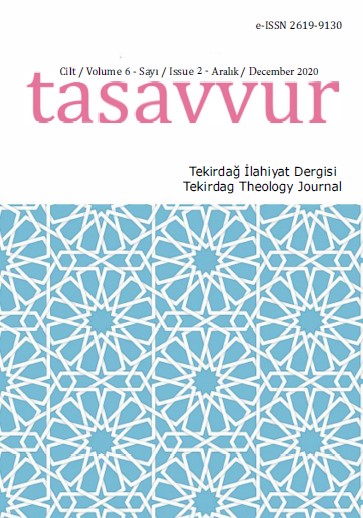Tanrı’nın Tekliğine Dair Tartışmalar
Discussions on the Uniqueness of God
Author(s): Nazif MuhtaroğluSubject(s): Islam studies, Philosophy of Religion
Published by: Tekirdağ Namık Kemal Üniversitesi İlahiyat Fakültesi
Keywords: Philosophy of Religion; Muslim kalām; the uniqueness of God; the modal argument for the the uniqueness of God; burhān al-tamānu; burhān al-tawārud;
Summary/Abstract: Arguments for the existence of God, if assumed to be successful, show at most that there is at least one god. What if there are more gods that exemplify the attributes ascribed to God on the basis of these arguments? This is known as the problem of the uniqueness of God and had been discussed extensively in Medieval philosophy. Muslim mutakallimūn offered a famous modal argument for the uniqueness of God, which is known as burhān al-tamānu. According to this argument, the postulation of two omnipotent gods that have free will leads to a contradiction in a possible world. Thus, by a reductio argument this postulation is shown to be problematic. In this article, I assume that burhān al-tamānu is successful and consider the case as to whether two gods can have necessarily the same will. After I examine all the scenarios in which this assumption is held to be true, I show that all scenarios lead to problems. In this regard, I make use of another argument formulated by the Muslim mutakallimūn, which is known as burhān al-tawārud. This argument aims to show that two gods having the same will over the same thing leads to problems. After updating this argument, I show its relevance to the discussion in question.
Journal: Tasavvur Tekirdağ İlahiyat Dergisi
- Issue Year: 6/2020
- Issue No: 2
- Page Range: 1153-1164
- Page Count: 12
- Language: Turkish

